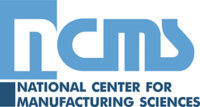The US Department of Defense is partnering with industry and academia on a multiphase CTMA initiative to improve the sensitivity of light detection using the principle of cycling exciting process (CEP) to develop semiconductor imaging arrays capable of improving vehicle safety, operational performance and reduce maintenance and sustainment costs.
Specific objectives include:
• integrating the CEP detector technology with CMOS and/or Bipolar CMOS (BiCMOS) processes so that the CEP detectors can be made available to both commercial and defense systems
• developing a process design kit (PDK) to integrate amorphous silicon CEP materials with the CMOS process
• producing the equivalent circuit model for CEP detectors and implement it into a simulation program with integrated circuit emphasis (SPICE) model
Phase II will expand on the successes in phase I and:
• complete and refine the process design kit (PDK) to enable developers to integrate innovative devices into imaging, sensing, and photon-counting applications
• fabricate and validate functional visible/near infrared (NIR) detectors using the CEP/CMOS platform, demonstrating their performance in real-world applications
• enhance NIR quantum efficiency while optimizing the fabrication process to improve device performance, yield, and uniformity
If you feel your organization has the technical capabilities and would like to be considered for this project, please complete the form below and upload your organization’s technical capabilities statement.
Interested Submissions Due by 6/27/25.
We encourage participation of Disadvantaged Business Enterprises (DBEs), including Minority Business Enterprises (MBEs) and Women’s Business Enterprises (WBEs).




